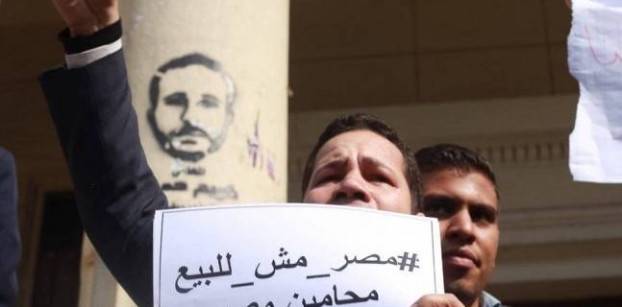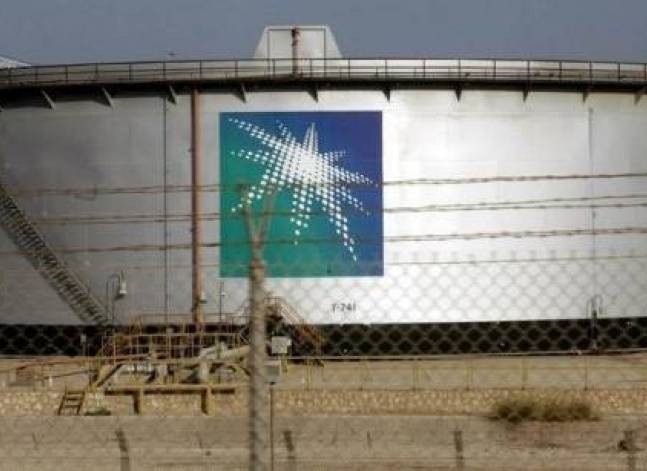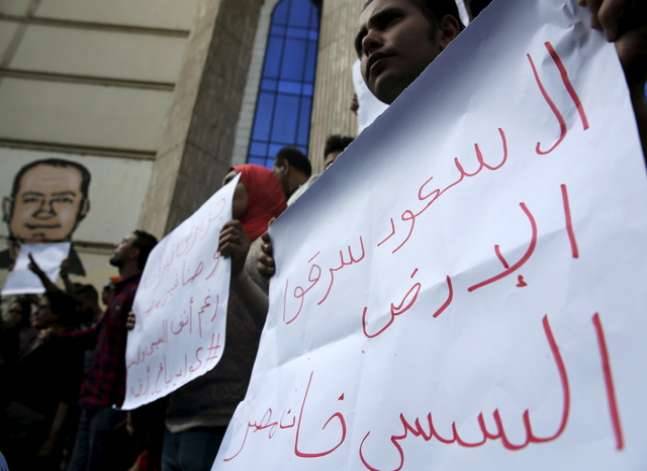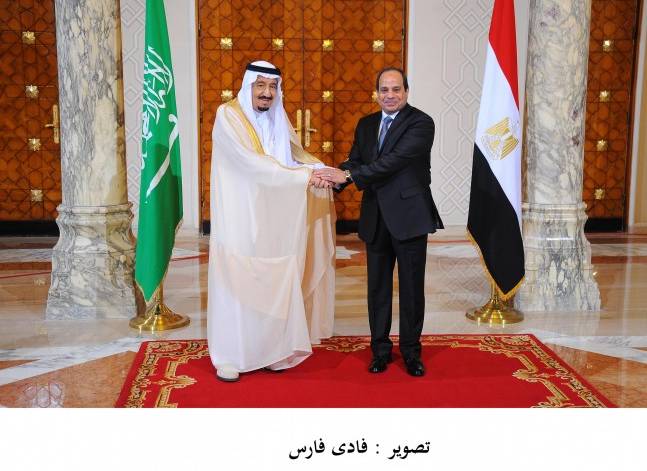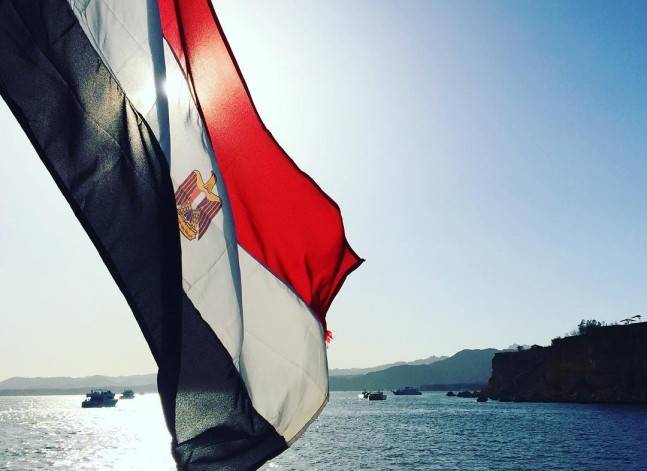Latest NEWS
- Aswat Masriya, the last word
- Roundup of Egypt's press headlines on March 15, 2017
- Roundup of Egypt's press headlines on March 14, 2017
- Former Egyptian President Hosni Mubarak to be released: lawyer
- Roundup of Egypt's press headlines on March 13, 2017
- Egypt's capital set to grow by half a million in 2017
- Egypt's wheat reserves to double with start of harvest -supply min
- Roundup of Egypt's press headlines on March 12, 2017
Egypt lawmakers say under no pressure to approve island deal
Protestor holding banner reading “Egypt is not for sale” during protest at the Lawyers Syndicate on Apr. 14, 2016 against the transfer of the Red Sea islands Tiran and Sanafir to Saudi Arabia. ASWAT MASRIYA / Asmaa Gamal
CAIRO, Apr 17, 2016 - Saudi Arabia has been generous with Egypt, but the assistance and investment it provides to the cash-strapped Egyptian economy will not pressure Egypt's parliament into ratifying a controversial maritime border demarcation agreement, parliamentarians told Aswat Masriya.
The agreement, signed during Saudi King Salman bin Abdelaziz’s first official visit to Cairo, stirred up controversy when it was announced in a statement by the cabinet earlier this month. It stipulates that the Red Sea islands of Tiran and Sanafir will be formally demarcated as being part of Saudi territorial waters.
The two islands are strategically significant as they both control maritime activity in the Gulf of Aqaba.
The deputy speaker of the House of Representatives, al-Sayyed Mahmoud Sherif, told Aswat Masriya that the parliament’s decision regarding the agreement will be based on an examination of relevant maps and documents, in addition to experts’ opinions on the issue.
He added that the agreement has not been presented to the House of Representatives yet, and once it reaches the parliament, a special parliamentary committee will be formed to discuss it and write a report about it.
Egyptian analysts, journalists, public figures, and social media users who are opposed to the transfer of control over Tiran and Sanafir to Riyadh argue the two islands are Egyptian, and accuse President Abdel Fattah al-Sisi of “selling Egypt” to Saudi Arabia in return for Saudi aid. Last Friday, thousands of protesters gathered in front of the press syndicate in Cairo, under the slogan "Friday of the Land”, marking a rare expression of public anger.
President Sisi had defended the agreement in a televised speech on Wednesday, saying that "Egypt does not sell its land to anyone and it does not take anyone's land."
‘Nothing can be traded for … land’
Haitham al-Hariri, a member of the House of Representatives, also said that the parliament’s decision has to be based on official documents. He believes that holding a popular referendum on the issue is a possible scenario, in line with Article 151 of the Egyptian constitution.
The article stipulates that the president represents the country and concludes treaties, after the parliament’s approval, and that voters “must be called for referendum on the treaties related to making peace and alliance, and those related to the rights of sovereignty.”
“In my personal view, nothing can be traded for... land,” Hariri said, answering a question on whether the parliament could approve the agreement in light of of Riyadh’s assistance to the Egyptian economy.
Egypt has enjoyed the support of Saudi Arabia, as well as of Gulf neighbours Kuwait and the United Arab Emirates, since the military ouster of then-President Mohammed Mursi in July 2013 following mass protests against his rule.
During the Saudi king’s visit to Cairo, he signed agreements worth $25 billion. Last December, Saudi Arabia said it will raise its investments in Egypt to above 30 billion Saudi riyals ($8 billion) and pledged to contribute to providing Egypt with petroleum needs for the next five years. Earlier, in March 2015, Saudi Arabia pledged $4 billion in investments in and assistance for Egypt.
Riyadh has been generous with Egypt since mid-2013 but the Saudi king’s latest visit came at a critical time for the Egyptian economy. Years of political turmoil have halved Egypt's foreign reserves and driven away tourists.
Referendum
House Member Khaled Abdel Aziz Shaaban said that it is not possible to reach a decision on the agreement before lawmakers understand all details regarding the islands’ ownership.
He expects the parliament to recommend that a referendum be held in line with the constitution.
“The House [of Representatives] that was elected by the people will not go down in history as having given up part of Egypt’s land,” Shaaban said.
“We will not trade approval [of the agreement] for continued Saudi aid,” the parliamentarian added.
But House Member Mohamed Wahb Allah, who is a member of the pro-government “In Support of Egypt” parliamentary coalition, said that the parliament “will not follow citizens’ emotions.”
Nor will it approve the agreement without discussing it first. “There will be extensive discussions,” he said.

